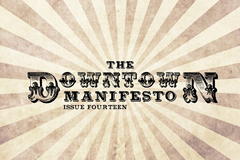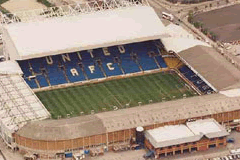We are now less than a month away before the country goes to the polls for a General Election that is heading for a very predictable stalemate.
A hung parliament seems almost inevitable, with opinion poll after opinion poll showing the two major parties neck and neck for months now.
I have long believed that the eventual outcome will see us in virtually the same place we are at now, with the Conservatives as the largest party, and the Liberal Democrats doing better than expected. The surge of support for the SNP in Scotland has done for any slim chance Labour had of forming a majority administration. What happens once all the backroom deals and horse trading have taken place is anyone’s guess, but another period of multi-party co-operation is certain.
Also certain is that the north of England will firmly reject the Tories, as will Scotland and Wales, making the political divide across Britain greater than ever.
As democracies go, the UK is the most centralised of any comparable governance structure in Europe, but the Scottish devolution debate has led to a George Osborne led devolution strategy that, thus far, has only really hit his own backyard of Manchester.
An election result that puts David Cameron back in number 10, but that leaves his party without any significant representation either from the north at Westminster or in the Town Halls of Liverpool, Leeds, Newcastle or Sheffield will simply add to the weight of argument for an acceleration of decentralisation and genuine devolved powers to city regions, and potentially county regions such as Lancashire too.
The price for such a shift in governance structures should be elected leaders, or elected mayors (the title shouldn’t much matter), because, quite rightly, no government should concede the sort of powers that Manchester will benefit from without strengthening the democratic accountability of those who will take those powers. There is also an urgent need to slim down and streamline existing local government structures.
As we argue in Downtown’s ‘Manifesto’ we are currently trying to deliver a 21st Century economy with 19th Century structures, and this has to change.
The discussion and debate as to what that change should be will begin in earnest on 8th May. Downtown is looking forward to being part of that important conversation.




